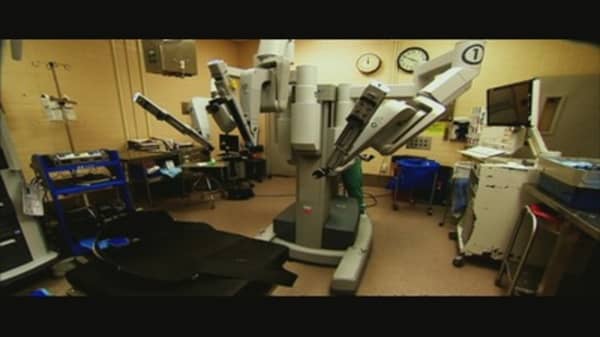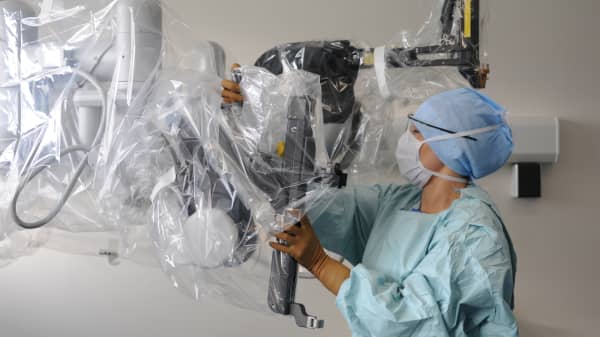The number of complications from robot-assisted surgery using Intuitive Surgical's da Vinci robot are underreported, allege critics of the procedure, fanning the controversy around the company's pioneering product.
The closest to a central database for medical device "adverse events" is the Food and Drug Administration's Manufacturer and User Facility Device Experience—or MAUDE—database.
Since 2000, the database shows reports of at least 85 deaths and 245 injuries related to Intuitive Surgical's da Vinci-related injuries.
During the same period, roughly 1.5 million robotic procedures have been performed. While some would argue that any death or injury could and should be unacceptable, the simple math suggests that reported problems are statistically insignificant in terms of overall risk.
CNBC.com's Da Vinci Debate series:
Part 1: Controversy Over Surgical Robotics Heats Up
Part 2: Patients Scarred After Robotic Surgery
Part 3: Counting the Problems of Robot-Assisted Surgery
Part 4: Marketing Is Key to Surgical Robot's Success





